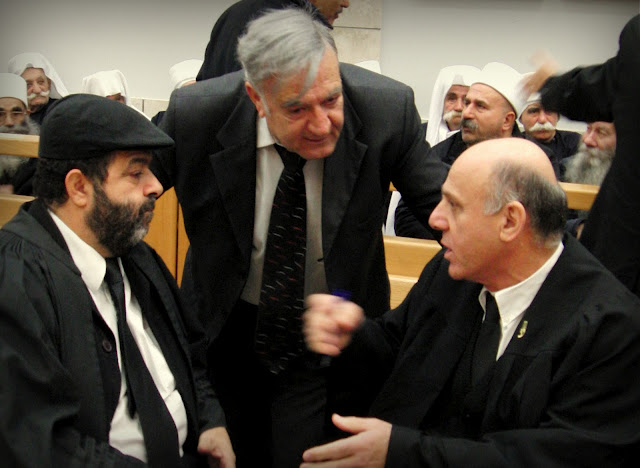Israel's Police and Security Forces Recommend Repressive Actions to Curtail Power of Islamic Movement
In the wake of September's attempted bombing attacks in Haifa and Tiberias, Israel's security forces last week announced a series of security recommendations aimed at limiting the power of the Islamic Movement in Israel. The Islamic Movement, a religious, political organization, is active throughout the state, and has been democratically elected to numerous municipal positions around the country. Among the recommendations made by Israel's security agencies, the police and the Shin Bet, were:
1) Withholding the budget allocations of those villages and towns which have elected a Islamic Movement member;
2) Allowing the government to assume a greater role in the selection of local Imams;
3) Denying salary increases to Islamic clerics who take part in religious service courses;
4) Banning the distribution of newspapers which carry "inflammatory" statements;
5) Restricting the meetings of the Movement and shutting down some of its institutions.
Adalah not only strongly disagreed with these recommendations, but also took swift action to attempt to stop their implementation (see Adalah's Letter to the Attorney General against limiting the Islamic Movement in Israel, 9/24/99). Subsequently, during a government forum convened on September 26th, Prime Minister Barak, along with other state officials, decided against implementing several of the security recommendations.
The government's course of action, however, represents a serious attack upon the political rights of the Arab minority in Israel. Among the policies accepted by the government were increased surveillance of Islamic Movement members and publications, increased government involvement in the appointment of local Imams, denial of salary increases to clerics taking part in religious service classes, and research into the possibility of closing Islamic Movement institutions. (Ha'aretz, 9/27/99) Taken as a whole, these actions not only impinge upon the political freedoms of the Arab minority, but also combine to reinvigorate a general atmosphere of distrust, as well as discrimination.
It is that very atmosphere, ironically, which many identify as the cause of the Islamic Movement's present popularity. As reported in Ha'aretz on September 24th, "It should be remembered that the political success of the Islamic Movement ... is largely due to the discriminatory policies against Arabs pursued by many governments over many years." The editorial continues, stating, "The Islamic Movement, thanks to its social activism, has won a democratic majority in municipal elections, and has not forced its presence on residents by force of arms."
















